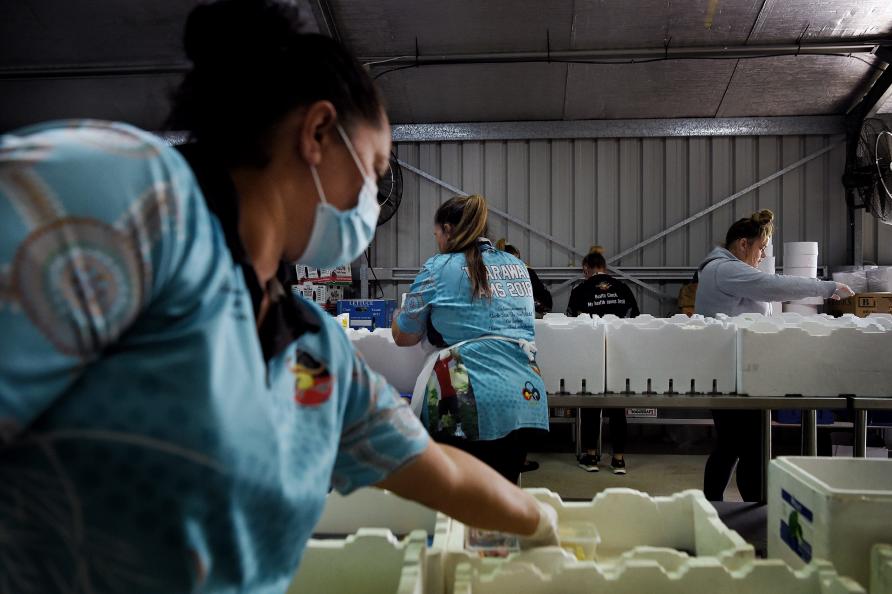The power of indigenous data

In mid-2020, the Australian Government outlined a new National Agreement on Closing the Gap which, for the first time, recognised the importance of better data in the ongoing policy effort to improve the lives of Aboriginal and Torres Strait Islander peoples.
One significant aspect of the new agreement is the recognition of the potential for better data to improve outcomes for Indigenous communities.
Creating “shared access to data and information at a regional level” is one of the agreement’s four priority reforms.

Data gathered by Indigenous organisations is more detailed and useful compared to generalised government datasets.
Currently, when Indigenous community organisations design, deliver and evaluate services for their communities, they are heavily reliant on government data.
But this data has significant limitations.
Australian government agencies collect, store and share data in a way that serves the generic interests of a mainstream Australian population.
For many Indigenous community organisations, this data is either too generalised or too inaccurate to properly reflect what is going on in their communities. And without accurate data it is difficult to know what’s working and what isn’t.
This ‘data gap’ between government datasets and community organisations’ corporate knowledge creates unnecessary hurdles for those aiming to deliver effective, high quality, community-led services where they are needed most.
The data gap exists not only between government datasets and what community organisations know from experience, but also between inexpert mainstream assumptions about data and what leading-edge data science can actually do.
This further gap leads to a misunderstanding of the value of data that community organisations are already collecting.

Government policy has recognised the need for better data on Indigenous Australia.
Many people in policy and program administration think of ‘data’ exclusively in terms of statistics, graphs and charts. But in the world of data science, data assets are far more granular, sophisticated and useful.
For example, standard survey-based datasets that counts the number of community speakers of a particular language in a particular geographic area, typically depend on predetermined assumptions about the language in question and the geographic area in question, which limits the value of the dataset.
By contrast, an unstructured dataset built by local service providers from linked records collected in the same area – like school enrolments, hospital admissions and real estate transactions – is capable of generating more detailed and accurate insights into the distribution of multiple languages, free of any predetermined assumptions.
Indigenous community organisations’ data assets are far more valuable, both financially and socially, than the heavily processed and pre-packaged generic datasets generated by many government agencies.
This is because Indigenous community data assets are generated from the ground up. They are based on Indigenous-designed data, information and knowledge structures consistent with Indigenous community priorities.

Indigenous community data is built from the ground up, consistent with Indigenous community priorities.
To continue with the community language example, languages recorded in incidentally created datasets – like those created by or about school students, hospital patients or home occupants – are more valuable when they are generated by the language speakers themselves, in the course of engaging with local services in which they hold a personal stake.
These community data assets become even more valuable when they are linked with government data to highlight gaps and alignments. But, of course, these linkages must be regulated by a comprehensive, Indigenous-led data governance framework.
At present there is no national-level operational framework for the governance of data generated by or about Indigenous Australians.
Existing frameworks and guidelines for the ethical handling of Indigenous data are generally restricted to university research projects.
Outside of the university sector, governments continue to rely on generic data governance frameworks that don’t give specific regard to the interests of Indigenous peoples.
The need for Indigenous-led regulation of the collection, storage and use of Indigenous data has led researchers at the University of Melbourne’s Indigenous Data Network (IDN) to develop a comprehensive Indigenous data governance framework.
It’s based on the most advanced international guidelines and principles on data ownership, custodianship and stewardship (OCS).

Indigenous designed datasets can better reflect community knowledge and priorities.
The IDN’s (In)digenous (Dat)a (O)wnership, (C)ustodianship and (S)tewarship or ‘InDatOCS’ framework, defines best-practice standard terms and definitions for the roles, functions and relations between individuals and groups engaged in the collection, storage and use of Indigenous data – all in the interests of Indigenous communities.
In this way, it provides a clear, tangible and practical tool for community organisations to use in realising the value of their own data assets.
An initiative of the Indigenous Studies Unit within the Melbourne School of Population and Global Health, the IDN’s work on the framework is part of a broader partnership with the National Indigenous Australians Agency to investigate the way Indigenous community organisations collect, store and use data, and how that data can be enhanced to further empower the work they do.
By using this framework, and with support from the IDN, community organisations will achieve greater independence from government, and a means to negotiate with government – on more equitable, evidence-based terms – about how services are designed, delivered and evaluated.
By closing the data gap, Indigenous community organisations stand to consolidate and expand their roles in Australia’s national infrastructure and service delivery ecosystem, while reinforcing the self-determination of their communities.
This article was published by Pursuit.
James Rose is a Senior Research Fellow at the Indigenous Studies Unit in the Melbourne School of Population and Global Health, where he supports the work of the Indigenous Data Network among a number of other research initiatives and projects.














